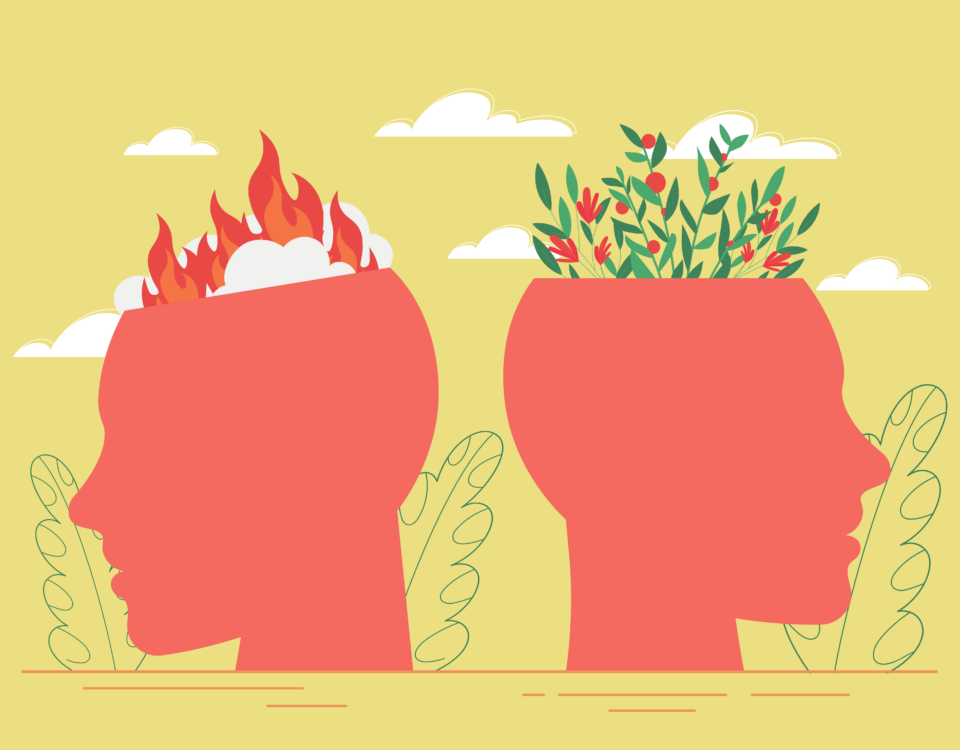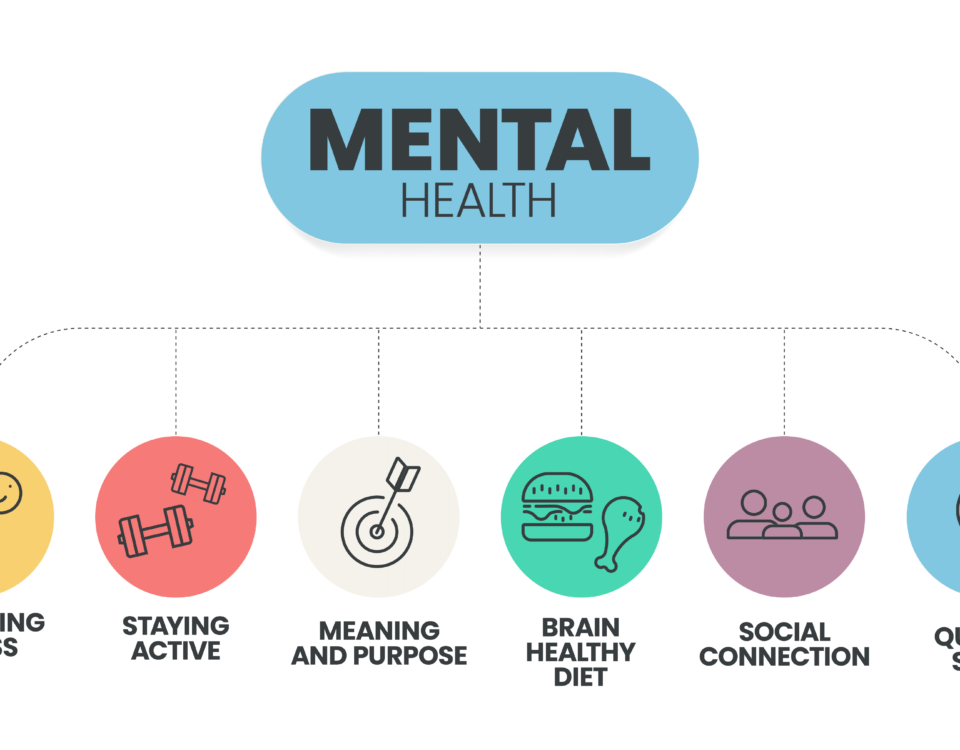Co-occurring disorders, also known as dual diagnosis or comorbidity, refer to the simultaneous presence of substance use disorders and mental health disorders in one individual. This complex interplay can significantly impact an individual's overall well-being, making effective diagnosis and treatment critical. This guide will explore what co-occurring disorders are, common types, symptoms, and the importance of comprehensive treatment.
What Are Co-Occurring Disorders?
Co-occurring disorders involve the simultaneous presence of two or more conditions, often combining substance abuse with mental disorders. This interaction between disorders can amplify their effects, making treatment more complex and challenging.
Substance use disorders are marked by the harmful or hazardous consumption of psychoactive substances, including alcohol and illicit drugs. Such use frequently leads to significant negative consequences, impacting various aspects of an individual's life.
In parallel, mental health disorders cover a wide range of conditions that affect mood, thinking, and behavior. These disorders include depression, anxiety disorders, schizophrenia, and bipolar disorder. Each mental illness presents its own unique set of challenges, which can be intensified when combined with substance use disorders.
What are the Risks of Co-Occurring Disorders?
Co-occurring disorders pose significant challenges that can negatively impact various aspects of an individual's life. When mental health issues and substance use disorders overlap, they often amplify each other, increasing the complexity of symptoms and the severity of outcomes.
- The overlapping symptoms of co-occurring disorders can make it difficult to identify both conditions accurately, leading to delays in receiving appropriate care.
- The interaction between substance use and mental health disorders can accelerate the progression of both conditions, causing long-term harm to physical and mental well-being.
- Individuals with untreated or poorly managed co-occurring disorders are more likely to experience relapses, as addressing one condition without treating the other often leads to a cycle of recurring issues.
- The combination of substance abuse and mental health challenges heightens the risk of suicidal thoughts and behaviors, particularly if underlying conditions are left untreated.
- Co-occurring disorders often strain relationships with family, friends, and colleagues. Emotional instability and behavioral changes can lead to social isolation and conflict.
- Struggles with employment, housing, and legal issues can arise due to impaired decision-making, substance-related offenses, or the inability to maintain a stable lifestyle.
- The combination of substance use and mental health disorders increases the risk of life-threatening complications, including overdose, self-harm, or medical neglect.
Addressing co-occurring disorders through integrated and comprehensive treatment is essential to reducing these risks and improving the overall quality of life. Early intervention and a tailored care approach can help individuals achieve lasting recovery.
Questions about our Facilities or Programs?
Our admissions coordinators are available 24/7 to answer any questions you may have as you consider whether treatment at Banyan is right for you or your loved one.
How Do Co-Occurring Disorders Develop?
The development of co-occurring disorders can be influenced by several risk factors:
- Chemical Imbalance: Long-term substance abuse can disrupt the brain's chemical balance, affecting neurotransmitters like dopamine and serotonin that regulate mood and behavior. This disruption can lead to or worsen existing mental health conditions.
- Self-Medication: Individuals with mental health disorders may use substances as a way to cope with their symptoms, seeking temporary relief but often worsening their overall condition.
- Genetic and Environmental Factors: Both genetic predisposition and environmental stressors, such as trauma or chronic stress, can increase the risk of developing co-occurring disorders.
- Trauma and Adverse Childhood Experiences (ACEs): Experiencing abuse, neglect, or other traumatic events—especially during formative years—can predispose individuals to both mental health disorders and substance use issues later in life.
- Chronic Stress: Prolonged exposure to stressors such as financial instability, relationship challenges, or demanding work environments can lead individuals to seek relief through substance use, which may contribute to mental health deterioration.
- Neurological Changes: Brain structure and function changes caused by substance use or untreated mental health conditions can create a feedback loop that worsens both conditions over time.
- Social Isolation and Lack of Support: Limited access to supportive relationships or networks can leave individuals more vulnerable to developing co-occurring disorders, as they may turn to substances to cope with feelings of loneliness or inadequacy.
- Early Substance Use: Starting to use alcohol or drugs during adolescence, when the brain is still developing, increases the risk of both substance use disorders and mental health challenges.
Common Types of Co-Occurring Disorders
Understanding specific combinations of co-occurring disorders can provide insight into how these conditions interact:
- Alcohol Addiction and Depression: Individuals may use alcohol to alleviate depressive symptoms, but alcohol can worsen depression over time.
- Schizophrenia and Substance Use Disorder: Drug abuse can exacerbate psychotic symptoms and complicate the treatment of schizophrenia.
- Anxiety Disorder and Drug Addiction: People with anxiety disorders might turn to drug use to escape their anxiety, leading to increased dependency and exacerbation of anxiety symptoms.
- Alcoholism and Antisocial Personality Disorder: Chronic alcohol use can contribute to behavioral issues associated with antisocial personality disorder.
- Heroin Abuse and Depression: Heroin use can lead to or worsen depressive symptoms due to its effects on brain chemistry.
- Cocaine Abuse and Anxiety Disorder: Cocaine use can heighten anxiety symptoms and create a cycle of increased substance use.
- Opioid Use and Post-Traumatic Stress Disorder (PTSD): Individuals with PTSD may misuse opioids to manage symptoms, risking further health complications.
Common Symptoms of Co-Occurring Disorders
Recognizing the symptoms of co-occurring disorders can aid in early intervention and treatment:
- Behavioral or Mood Changes: Individuals may exhibit significant changes in behavior, such as social withdrawal, mood swings, irritability, and heightened anxiety. These changes often indicate an underlying issue that needs attention.
- Increased Substance Abuse: The use of drugs or alcohol may increase as individuals attempt to manage their mental health symptoms. This can lead to a more severe dependency and complicate treatment.
- Physical Symptoms: Physical signs of substance abuse may include bloodshot eyes, tremors, slurred speech, or disruptions in appetite and sleep patterns. These symptoms can also indicate the need for a comprehensive evaluation.
- Poor Performance: Co-occurring disorders can significantly impact an individual's performance in academic or work settings, leading to poor grades, job performance issues, and increased absenteeism.
- Relationship Difficulties: Maintaining relationships can be challenging due to trust issues, conflicts, and emotional instability associated with co-occurring disorders.
- Suicidal Thoughts: In severe cases, individuals may experience suicidal ideation or engage in self-harm as a result of the combined effects of substance abuse and mental health issues.
It’s also important to note that co-occurring disorder symptoms can be complex and may vary from person to person.
Getting into treatment is easy with our free insurance verification
"*" indicates required fields
The Importance of Co-Occurring Disorder Treatment
Effective treatment for co-occurring disorders requires a holistic approach that addresses both the substance use and mental health aspects of the condition. Key components of treatment include:
- Integrated Treatment Plans: Addressing both disorders simultaneously with a coordinated treatment plan that considers how each disorder influences the other.
- Evidence-Based Therapies: Utilizing therapeutic techniques such as cognitive behavioral therapy (CBT) and dialectical behavior therapy (DBT) to manage symptoms and improve coping skills.
- Supportive Care: Providing support through counseling, group therapy, and support groups to help individuals develop healthier coping mechanisms and build a support network.
Finding Dual Diagnosis Treatment
At Banyan Treatment Centers, we offer specialized programs designed to provide comprehensive care for individuals with co-occurring disorders. Our residential treatment programs facilitate a smooth transition from hospitalization or provide direct admission for ongoing stabilization in a supportive and less restrictive setting. Our approach ensures that both mental health and substance use disorders are addressed with the appropriate therapeutic interventions.
Get Started Today with Co-Occurring Disorder Treatment Near Me
Co-occurring disorders present unique challenges that require a nuanced and integrated approach to treatment. Understanding the interaction between alcohol/ drug addiction and mental health disorders is crucial for effective diagnosis and recovery. If you or a loved one is struggling with co-occurring disorders, Banyan Treatment Centers can provide the support and care needed for a successful recovery through both mental illness and substance abuse treatment.
For more information about our dual diagnosis treatment and how we can support you or a loved one in recovery, call Banyan Treatment Centers at 888-280-4763 or send us your contact information, and we’ll reach out to you.
Related Reading:








